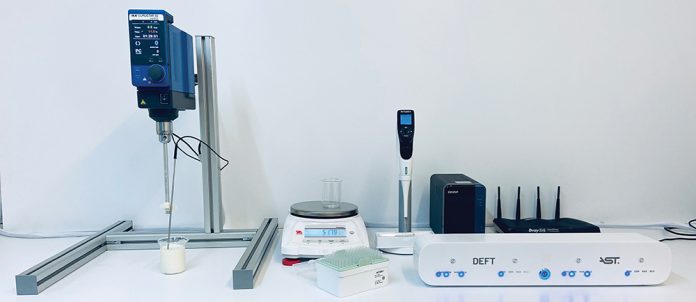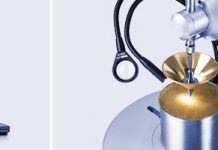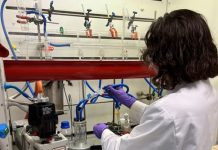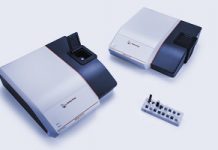Laboratory Digitalisation – “a paradigm shift in productivity or just another failed experiment?”
Open any scientific magazine or online resource and we are presented with articles about the Lab-of-the-Future, connected laboratories, the Internet of Things (IoT) or Internet of Laboratory Things (IoLT) and how the digital revolution will improve productivity in laboratories and change our way of working forever!
However, on the ground, many laboratories have not yet joined this digital revolution or are feeling left-behind, or are unsure of a winning strategy and/or simply do not know when or how to take the plunge into this technology revolution with a proven, affordable and future-proof ‘off-the-shelf’ solution.
When laboratory instruments first started producing digital files, they were simply stored on a local computer floppy disk. Fast-forward to 2021 and the floppy disk is replaced with a USB storage stick. While some laboratories might see the above comments as outdated, the truth is that many labs still rely on local PC or transfer data file storage for simplicity and cost effectiveness, viewing more automated networked systems as too complex and costly.
Whilst, Electronic Lab Notebooks (ELNs) and Laboratory Information Management systems (LIMS) have been a success and furthered the proliferation of digital information generated by the laboratory, connectivity to actual common bench lab instruments in a networked way is still somewhat limited commercially? Many critical laboratory services are too small for classical LIMS and ELN executions yet could benefit significantly from digitalisation and automation at the bench instrument level.
As is so often the case, it is start-ups, disruptors, or experts with a different perspective that can often make the breakthrough in innovation in established industries. Perhaps a good example of this is the innovative, laboratory digitalisation and robotics company, Applied Scientific Technologies (AST). Who with their Digital Enabled Formulation Toolkit (Deft) and with significant input from industrial lab users and targeted at the bench scientist in chemical formulation, material sciences, process chemistry and R&D labs offer a proven, affordable, integrated and connected lab environment solution.
Deft captures all workflow, experimental design and instrument process data providing transparency, reproducibility and the ‘information gap’ when comparing manually made bench formulations. At the heart of the system is the Deft Gateway which combines Bluetooth lab instrument connectivity via SmartTabs with Wi-Fi to connect any legacy laboratory instrument to a secure network, all controlled from within an iOS or Android formulation and control App supplied on a tablet or phone. Deft is LIMS and ELN compliant or can be used as a stand-alone system.
For many laboratories, the Lab-of-the-Future and laboratory digitalisation revolution is a conundrum, a Betamax v’s VHS storyline? If digitalisation is going to offer the rewards in productivity gains and wealth creation through scientific endeavour, especially in the post-COVID era, we need industry standards to significantly improve connectivity of the bench lab instruments used by scientists, and at a technical level & price point which is executable and affordable for the majority of laboratories. Deft is one such solution!
In the era of pandemics, lockdowns, social distancing work practices and changes to R&D working and industrial labs worldwide, it might be that we need to realise a paradigm shift in productivity gain in the laboratory sooner rather than later or we may well be facing more than just a failed experiment!
See Deft in action on the GPE Scientific and Julabo Stand G55 at the CHEMUK2021 expo.
Author: Dr. Dale Charlton is an expert in laboratory & automation for over 35 years and works as Applications Director for Applied Scientific Technologies Limited










